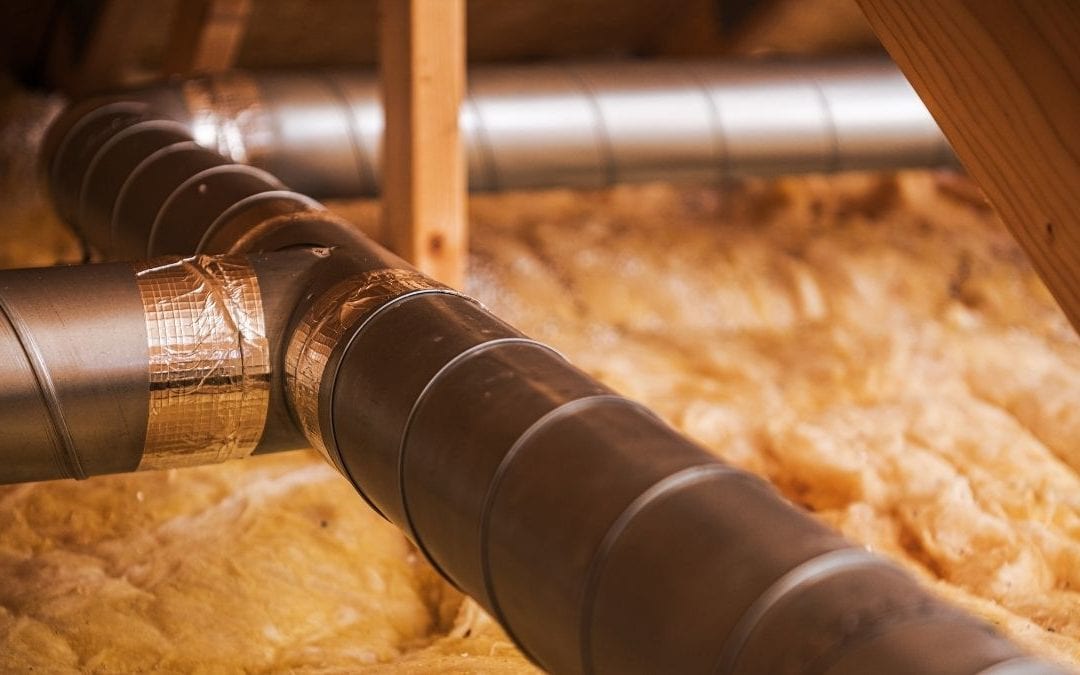Now that we’re entering into the thick of summer, most AC units are constantly running at all hours of the day and night. Knowing how to keep your air conditioner running to cool your home in the most optimal and efficient way can save you money and keep you comfortable. What many may not be aware of is that the way your attic retains or releases heat can severely affect the rest of your home. In fact, over 90% of homes in the U.S. are not insulated or properly ventilated. Fortunately, there are several ways to reduce the heat in your attic without exhausting your AC. The tips below will help you learn how to reduce the temperature in your attic.
How To Reduce Heat In The Attic
How Heat Travels
Depending on your location, the size of your attic, and the pitch of your attic roof, there may be a number of solutions to drop your attic temperature. Something to keep in mind is that there are three ways that heat travels. Conduction happens when heat moves from hot to cold objects. This means, whether in the summer or winter, heat will find its way to colder areas of the home.
In the winter, heat will move from the home into the attic and vice versa in the summer. Convection is where the term “heat rises” came from. In the winter, the dense cold air will fall and your beloved warm air will rise up into the attic. Lastly, radiant energy describes electromagnetic radiation. Meaning the sun will heat your attic as it moves across the sky. With the knowledge of how heat travels, we can more efficiently understand the solutions to a hot attic and keeping the house cool during the hot summer months.
1. Energy-efficient fans
A good-quality fan in your attic can redirect the hot air outside. These are attic ventilation fans, not your typical house fan. An attic fan can cost anywhere from $200 to $1,300, so you’ll want to analyze your budget beforehand. They have the ability to extend the lifespan of your roof by preventing moisture issues and excessive heat. Deciding on a fan will depend on how properly insulated your home is. They may actually decrease your energy efficiency if this isn’t the case.
2. Ventilation
Without adequate ventilation, moisture can accumulate and lead to mold and mildew in your attic. Proper ventilation such as ridge vents, as well as soffit vents, allow you to maintain a constant temperature and works best in mild to cold climates. An important thing to keep in mind will be to avoid blocking vents with attic insulation. This will prevent airflow. Another word of warning is that some systems inadvertently pull HVAC air into the attic. However, a proper installation by a professional will ensure this doesn’t happen.
3. Seal air leaks
Sealing the cracks is an obvious solution here. Sealing any and all cracks and leaks that allow air to excessively enter or exit will go a long way. Doing so can save you up to 10% every month on your energy bill. And that adds up!
4. Proper insulation
The purpose of insulation is that it acts as a barrier to temperature extremes. It can come in a number of forms, such as loose-fill or blanket insulation. If you choose to DIY it, be careful when handling fiberglass. Proper and abundant insulation can save you 20% on your heating and cooling costs. It’s hands down one of the most effective ways to improve your attic’s energy efficiency.
5. Alternative methods
An alternative method that many may not consider is planting shade landscaping to keep the hot sun off your roof. Additionally, if your HVAC’s ductwork is holding dirt and debris, cleaning it out relieves your system from having to work so hard. It will also improve the air quality in your home. Opting for roofing materials like solar-reflecting shingles will also help maintain a comfortable temp. There are also cool roofs that absorb less heat and reflect more sunlight compared to the traditional materials used.
There are many options if you’re seeking to keep your attic cool. Whether it’s buying a home with solar-reflecting shingles or hiring a professional to install the right insulation, your attic, and your home will thank you. Checking off this list will get you on your way to a perfect temperature for your home no matter the season or extreme weather conditions.
Additional Reading:
Indoor Humidity in Winter vs Summer
How Does Summer Humidity Affect Air Conditioning?
Is It Bad To Run The AC All Day In A Heat Wave?
Reduce Attic Heat – Radiant Heating
Air Care Heating and Air Conditioning – Residential & Commercial HVAC Services in Omaha & Council Bluffs
Air Care Heating and Air Conditioning is a full-service HVAC company located in Council Bluffs & Omaha. We know how important well-functioning heating, ventilation, and air conditioning systems are to your home or business, especially living in the Midwest. No matter what your heating and cooling needs, we provide a variety of heating and cooling HVAC services committed to exceeding your expectations with 100% customer satisfaction. Contact us today for your routine maintenance service, repairs, or installation requests -and let us show you the difference.

